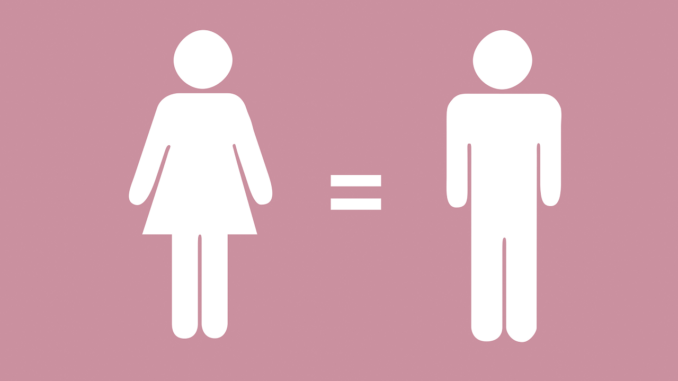
The role of women in enhancing development has been widely acknowledged globally among development economists and policy makers.
At the family level, women are known to be very good managers of their households – catering for the well-being of their husbands, children as well as their extended family members.
It’s been proven that putting money in the hands of the woman is more beneficial to the family than putting it in the hands of the man.
This proven success of women at the micro level needs to be replicated at the corporate and macro level of the economy for maximal enhancement of the human condition.
From the report of a recent World Bank Group study of 141 countries, the widening nature of gender inequality, against women, appears worrisome.
The report asserts that the global economy loses about $160 trillion in wealth because of differences in lifetime earnings between women and men.
The loss for Sub-Saharan African countries, according to the Report is $2.5 trillion.
These losses are attributable to the sorry state of the level of participation of women in the workplace, particularly in the public sector of the economy.
Globally, girls generally marry early and have children, thereby alienating them from participation in economic activities outside the household.
Women thus account for a mere 38% of human capital wealth relative to the 62% for men.
This global state of affairs is corroborated by a National Bureau of Statistics (NBS) data on female labour force participation in Nigeria.
There has been a sustained gender gap in Nigeria such that even at the state level, less than 25% of the labour force is made up of women.
This robs the macro economy of the successes achieved by women at the micro level in pushing the frontiers of human development further.
In the private sector, the NBS data indicate that there exists a three to one ratio of employment in favour of males with pension benefit correspondingly accruing more to men than to women.
Given the foregoing, there is thus the need to reduce disparity between the genders in participation in the economy.
There is the need to create opportunities for women to express themselves given that women build capacity for themselves as they develop.
Currently, more women are now going to school and there is the need to create more openings for them to enhance development.
Though men are generally known to have a long-term view of development, they hardly show strength in short term planning, an area in which the women show greater strength and capacity.
This female attribute has been known to enhance the growth of many national economies, particularly the United States of America where women are largely in charge of the economy – the largest national economy globally.
The successes in the United States in this regard are attributable to government affirmative action and equal employment opportunities for both genders due to the problems the country had experienced in the past.
Women have largely been known to be multipliers of whatever is placed before them, good or bad.
The case of Rwanda in East Africa, where more women are being enlisted into leadership positions is quite instructive.
Rwanda currently is documented to be one of the best performing economies in Africa – largely attributable to the increased participation of women in the economy, particularly at the leadership levels.
This is in line with the African Union Charter, which encourages more balanced gender equality on the continent.
In the corporate world, gender equity has been quite value-adding.
Studies indicate that that as a firm’s operating environment becomes more complex, the need for various talents and capabilities of a heterogeneous nature increases.
Another study recently concluded that the inclusion of women and ethnic minorities do have a positive and significant impact on the financial performance of firms when Return on Asset was used as a measure of performance.
A recent study in the Nigerian economy shows that gender diversity in the boardroom contributes positively to the financial performance of listed deposit money banks.
In line with human capital theory, this is a clear business case for the inclusion of women in the boardroom.
The focus on minimising gender inequality should still be on education and the case for more education for women largely is a strong one.
Women are also known to have the capacity for multi-tasking. Presently, women have made significant progress in the study of the humanities.
In addressing this problem of women participation in the economy, focus should therefore be on gender equity and not just gender equality.
The key is in the promotion of complementarity among the genders.
Women should not just wait for favours from the authorities but should also take control and compete in the workplace.
Hence there is the need to start another advocacy for women, in order to further enhance the development of the Nigerian society.
World leaders need to recognise that the barriers on the path of women in employment as well as in holding leadership positions are still enormous in virtually every country.
There is the need for action now, both at the country and the global levels.
This can be done by policy makers investing in policies that promote more education, more opportunities and better jobs for women as well as equal pay at work.
Nigeria too, of course, still has a lot to do in this regard.
END

Be the first to comment